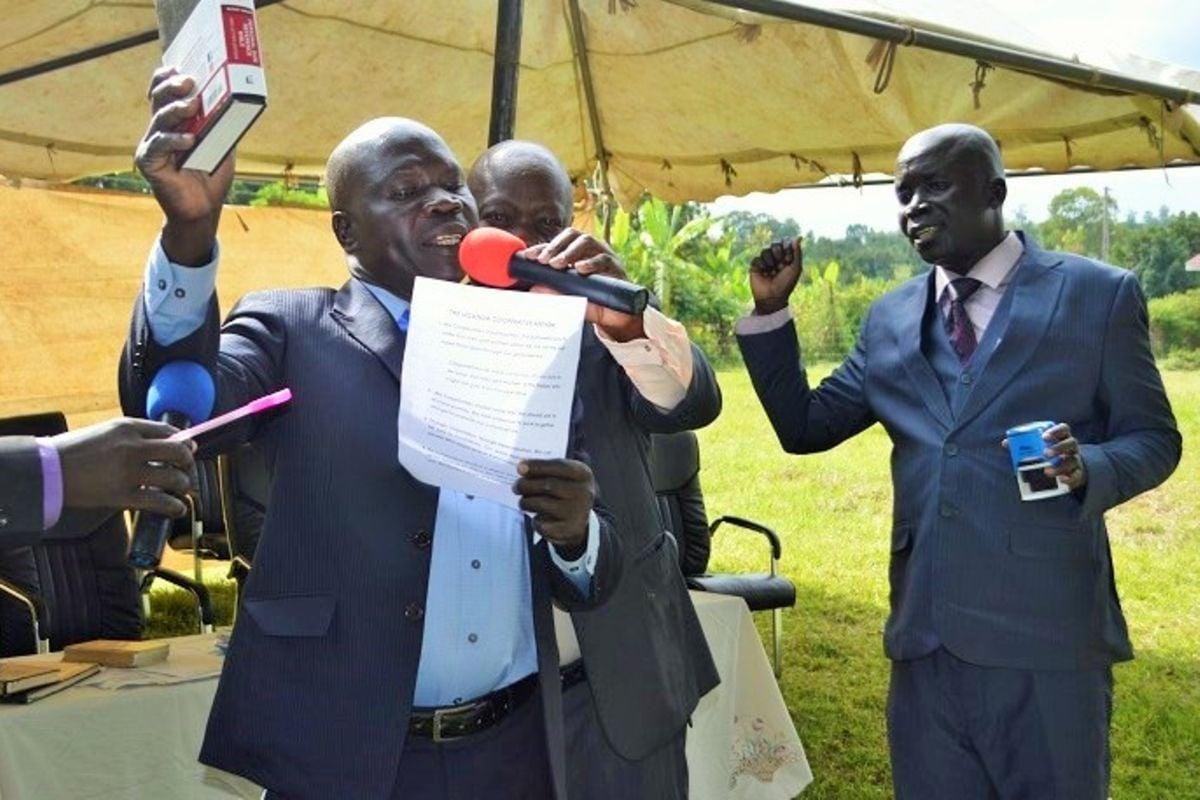Africa-Press – Uganda. New board members of West Nile Cooperative Union were yesterday sworn in at the union offices in Wandi trading center Terego district after 23 years of inactivity.
The 40 member board headed by Mr Christopher Adia however have an uphill task including demanding for payment of farmers who supplied tobacco to Continental Tobacco Company in the 2018/2019 season amounting to Shs 9.7 billion.
“We are entering a totally broken union, the challenges which lie ahead of us is to rebuild this institution which has helped farmers for decades. We remain open for new members to join as we refocus the development of the union,” Mr Adia stated.
He said the revival of the union to its former glory will be costly and time consuming adding that its revival will contribute favorably to the economic development of the county.
“Everyone should take a keen interest in the revival of this union so that it contributes to the economic development of this county. The union will guard against farmers being cheated by middlemen as we engage tobacco farmers to food crop enterprises”, he said.
The General Manager of the Cooperative Union, Mr Moses Etukibo, said mindset change and implementation of alternative livelihood projects to tobacco such as Hass avocado, coffee, tea, macadamia, apiary value chain, oil seeds and poultry and among new initiatives at the union to move away from tobacco.
He said the union intends to engage in commercial farming and establish a farmer’s industrial park in addition to value addition and processing.
The Terego resident district commissioner, Ms Bessie Modesta, urged the new management to take a comprehensive asset registry to establish what they have.
The West Nile Cooperative Union has 23 affiliate primary societies spread across the region, 18,600 acres of eucalyptus and over 40,000 members.
Most cooperatives in Uganda collapsed after the collapse of the Cooperative Bank in 1999 which used to provide cooperative tailored credit at favourable terms. After the closure of the Cooperatives Bank, loans were restructured to unsustainable commercial terms.
Evidence shows that factors that led to the collapse of many cooperative unions are related to the years of political instability, the inability of the union to compete on a liberalized market, the accumulation of huge debts, and poor management.
For More News And Analysis About Uganda Follow Africa-Press






